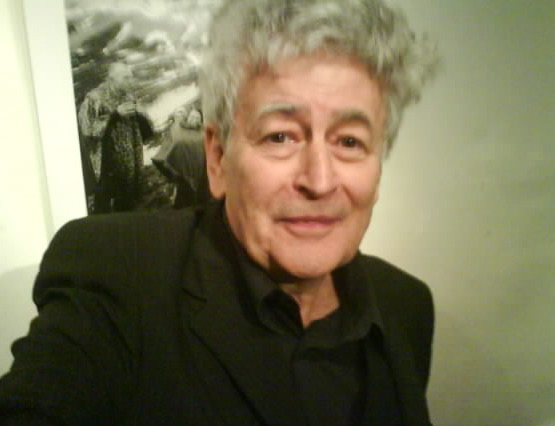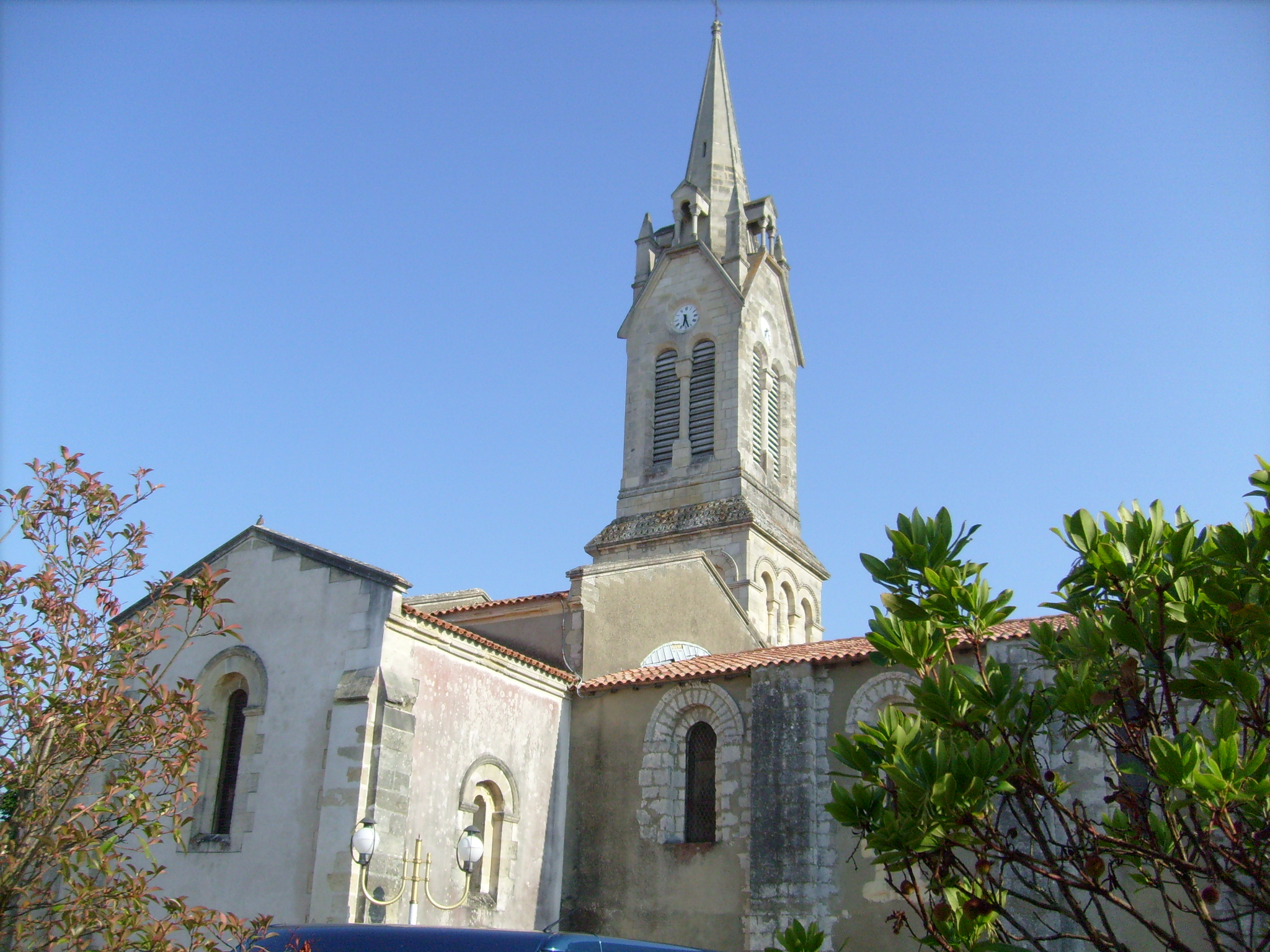|
Georges Dandelot
Georges Édouard Dandelot (2 December 1895 – 17 August 1975) was a French composer and teacher. Biography Dandelot was born in Paris. His father was Alfred Dandelot, and his mother was the daughter of a piano maker. Dandelot studied at the Paris Conservatory under Émile Schwartz, Louis Diémer, Xavier Leroux, Jean Gallon, Georges Caussade, Charles-Marie Widor, Vincent d'Indy, Maurice Emmanuel, Paul Dukas, and Albert Roussel. After serving in World War I, he began teaching piano in 1919 at the École Normale de Musique de Paris; from 1942 he taught harmony at the Paris Conservatory, and published treatises on solfege and harmony. Among his pupils were composers Paul Méfano, Michel Perrault, Rodica Sutzu, and Michel Philippot. He died in Saint-Georges-de-Didonne, Charente-Maritime. Selected compositions Orchestral works *''Pax'', Oratorio An oratorio () is a large musical composition for orchestra, choir, and soloists. Like most operas, an oratorio includes the use of ... [...More Info...] [...Related Items...] OR: [Wikipedia] [Google] [Baidu] |
Georges Dandelot 1925
Georges may refer to: Places *Georges River, New South Wales, Australia *Georges Quay (Dublin) *Georges Township, Fayette County, Pennsylvania Other uses *Georges (name) * ''Georges'' (novel), a novel by Alexandre Dumas * "Georges" (song), a 1977 song originally recorded by Pat Simon and covered by Sylvie Vartan *Georges (store), a department store in Melbourne, Australia from 1880 to 1995 * Georges (''Green Card'' character) People with the surname * Eugenia Georges, American anthropologist *Karl Ernst Georges (1806–1895), German classical philologist and lexicographer, known for his edition of Latin-German dictionaries. See also *École secondaire Georges-P.-Vanier, a high school in Hamilton, Ontario, Canada *École secondaire Georges-Vanier in Laval, Quebec, Canada * French cruiser ''Georges Leygues'', commissioned in 1937 * French frigate ''Georges Leygues'' (D640), commissioned in 1979 *George (other) *Georges Creek (other) *Georges Creek Coal and Iron Co ... [...More Info...] [...Related Items...] OR: [Wikipedia] [Google] [Baidu] |
Paul Méfano
Paul Méfano (March 6, 1937 – September 15, 2020), was a French composer and conductor. Biography Paul Méfano was born in Basra, Iraq. He pursued musical studies at the École Normale de Musique de Paris, and then later at the Paris Conservatory (CNSMP), where he was a student of Andrée Vaurabourg-Honegger, Darius Milhaud, and Georges Dandelot. He completed his studies in Basel at the courses taught by Pierre Boulez, Karlheinz Stockhausen, and Henri Pousseur. He regularly attended the concerts of the Domaine Musical, as well as the seminars at Darmstadt, and enrolled in Olivier Messiaen's class at the CNSMP. Messiaen described Méfano as "restless, intense, and always in search of radical solutions". In 1965 his music was performed publicly for the first time, at the Domaine Musical under the baton of Bruno Maderna. From 1966 to 1968 he lived in the United States, and then in 1969 he moved to Berlin at the invitation of the German Academic Exchange Service (DAAD). In 1970 ... [...More Info...] [...Related Items...] OR: [Wikipedia] [Google] [Baidu] |
Academic Staff Of The Conservatoire De Paris
An academy (Attic Greek: Ἀκαδήμεια; Koine Greek Ἀκαδημία) is an institution of secondary or tertiary higher learning (and generally also research or honorary membership). The name traces back to Plato's school of philosophy, founded approximately 385 BC at Akademia, a sanctuary of Athena, the goddess of wisdom and skill, north of Athens, Greece. Etymology The word comes from the ''Academy'' in ancient Greece, which derives from the Athenian hero, ''Akademos''. Outside the city walls of Athens, the gymnasium was made famous by Plato as a center of learning. The sacred space, dedicated to the goddess of wisdom, Athena, had formerly been an olive grove, hence the expression "the groves of Academe". In these gardens, the philosopher Plato conversed with followers. Plato developed his sessions into a method of teaching philosophy and in 387 BC, established what is known today as the Old Academy. By extension, ''academia'' has come to mean the accumulation, dev ... [...More Info...] [...Related Items...] OR: [Wikipedia] [Google] [Baidu] |
1975 Deaths
It was also declared the ''International Women's Year'' by the United Nations and the European Architectural Heritage Year by the Council of Europe. Events January * January 1 - Watergate scandal (United States): John N. Mitchell, H. R. Haldeman and John Ehrlichman are found guilty of the Watergate cover-up. * January 2 ** The Federal Rules of Evidence are approved by the United States Congress. ** Bangladesh revolutionary leader Siraj Sikder is killed by police while in custody. ** A bomb blast at Samastipur, Bihar, India, fatally wounds Lalit Narayan Mishra, Minister of Railways. * January 5 – Tasman Bridge disaster: The Tasman Bridge in Hobart, Tasmania, Australia, is struck by the bulk ore carrier , killing 12 people. * January 7 – OPEC agrees to raise crude oil prices by 10%. * January 10–February 9 – The flight of ''Soyuz 17'' with the crew of Georgy Grechko and Aleksei Gubarev aboard the ''Salyut 4'' space station. * January 15 – Alvor Agreement: Portuga ... [...More Info...] [...Related Items...] OR: [Wikipedia] [Google] [Baidu] |
1895 Births
Events January–March * January 5 – Dreyfus affair: French officer Alfred Dreyfus is stripped of his army rank, and sentenced to life imprisonment on Devil's Island. * January 12 – The National Trust for Places of Historic Interest or Natural Beauty is founded in England by Octavia Hill, Robert Hunter and Canon Hardwicke Rawnsley. * January 13 – First Italo-Ethiopian War: Battle of Coatit – Italian forces defeat the Ethiopians. * January 17 – Félix Faure is elected President of the French Republic, after the resignation of Jean Casimir-Perier. * February 9 – Mintonette, later known as volleyball, is created by William G. Morgan at Holyoke, Massachusetts. * February 11 – The lowest ever UK temperature of is recorded at Braemar, in Aberdeenshire. This record is equalled in 1982, and again in 1995. * February 14 – Oscar Wilde's last play, the comedy ''The Importance of Being Earnest'', is first shown at St Jam ... [...More Info...] [...Related Items...] OR: [Wikipedia] [Google] [Baidu] |
Don Randel
Don Michael Randel (born December 9, 1940) is an American musicologist, specializing in the music of the Middle Ages and Renaissance in Spain and France. He is currently the Chair of the Board of the American Academy of Arts and Sciences, a trustee of the Carnegie Corporation, and a member of the Encyclopædia Britannica editorial board, and has previously served as the fifth president of the Andrew W. Mellon Foundation, twelfth president of the University of Chicago, Provost of Cornell University, and Dean of Cornell's College of Arts and Sciences. He has served as editor of the third and fourth editions of the ''Harvard Dictionary of Music'', the ''Harvard Biographical Dictionary of Music'', and the ''Harvard Concise Dictionary of Music and Musicians''. He was elected to the American Philosophical Society in 2002. Randel is a triple alumnus of Princeton University, where he earned his bachelor's, master's and doctoral degrees in musicology. After completing his PhD at Princeton, ... [...More Info...] [...Related Items...] OR: [Wikipedia] [Google] [Baidu] |
Oratorio
An oratorio () is a large musical composition for orchestra, choir, and soloists. Like most operas, an oratorio includes the use of a choir, soloists, an instrumental ensemble, various distinguishable characters, and arias. However, opera is musical theatre, while oratorio is strictly a concert piece – though oratorios are sometimes staged as operas, and operas are sometimes presented in concert form. In an oratorio, the choir often plays a central role, and there is generally little or no interaction between the characters, and no props or elaborate costumes. A particularly important difference is in the typical subject matter of the text. Opera tends to deal with history and mythology, including age-old devices of romance, deception, and murder, whereas the plot of an oratorio often deals with sacred topics, making it appropriate for performance in the church. Protestant composers took their stories from the Bible, while Catholic composers looked to the lives of saints, as w ... [...More Info...] [...Related Items...] OR: [Wikipedia] [Google] [Baidu] |
Charente-Maritime
Charente-Maritime () is a department in the Nouvelle-Aquitaine region on the southwestern coast of France. Named after the river Charente, its prefecture is La Rochelle. As of 2019, it had a population of 651,358 with an area of 6,864 square kilometres (2,650 sq mi). History Previously a part of the provinces of Saintonge and Aunis, Charente-Inférieure was one of the 83 original departments created during the French Revolution on 4 March 1790. On 4 September 1941, during World War II, it was renamed as Charente-Maritime. When the department was first organised, the commune of Saintes was designated as the prefecture of the department (Saintes had previously been the capital of Saintonge). This changed in 1810 when Napoleon passed an imperial decree to move the prefecture to La Rochelle. During World War II, the department was invaded by the German Army and became part of occupied France. To provide defence against a possible beach landing by the Allies, the Organisation Tod ... [...More Info...] [...Related Items...] OR: [Wikipedia] [Google] [Baidu] |
Saint-Georges-de-Didonne
Saint-Georges-de-Didonne () is a commune in the Charente-Maritime department and Nouvelle-Aquitaine region in southwestern France. INSEE An important seaside resort of Royan and the coast of Beauty, on the right bank of the mouth of the Gironde estuary and adjacent Atlantic Ocean, Saint-Georges-de-Didonne is a major economic and tourist centers of royannaise metropolitan city which it is now becoming a residential suburb. It has a population of 5,342 inhabitants (2019) - to over 50,000 people during the summer season - and is part of the agglomeration community of Royan Atlantique with 83,661 inhabitants (2019). Population Notable people * |





